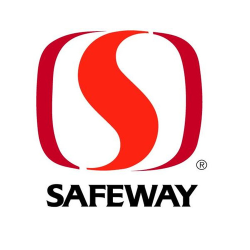Top Class Actions’s website and social media posts use affiliate links. If you make a purchase using such links, we may receive a commission, but it will not result in any additional charges to you. Please review our Affiliate Link Disclosure for more information.

The sanctions against Safeway by U.S. District Judge John Tigar purportedly stem from the grocer’s neglect in producing highly relevant discovery documents related to their terms and conditions for online grocery delivery.
In March 2014, a partial summary judgment was granted for the certified Class of consumers, stating that Safeway breached its contract with Class Members who registered to shop online after 2006 “by charging higher prices for groceries on its online Safeway.com delivery service than it charged in the stores where the groceries were selected.”
However, Judge Tigar denied the plaintiffs’ subsequent motion for partial summary judgment regarding Safeway’s liability to Class Members.
After this motion was denied, the only issue remaining was whether Class Members who registered for the delivery service prior to 2006 agreed to the same contract as Class Members who registered after 2006.
In order to present arguments for this particular issue, in Feb. 2015 plaintiffs requested documents showing the Special Terms and registration process in effect from 2001 to 2005.
Safeway responded to this discovery request in March noting that “Safeway [did] not have access to the Special Terms that were in effect between 2001 and 2005.”
But just a week before the Oct. 6 scheduled trial date, Safeway reportedly produced 10 highly relevant documents related to the grocery chain’s pre-2006 terms and conditions. According to Safeway, these documents were found on a “legacy” computer drive by Safeway’s Director of Marketing in preparation for his testimony on Safeway’s behalf.
“Although there is no indication of bad faith in Safeway’s inability to find the ten responsive documents during fact discovery, the court concludes that Safeway’s initial search of the legacy drive was unreasonable,” Judge Tigar said Tuesday.
Plaintiff Michael Rodman brought the class action lawsuit against Safeway in 2011, alleging the grocery chain charged more for products sold online for its namesake, Vons and Genuardi’s divisions, while its terms of service agreement indicated that customers would pay the same as in-store buyers.
The class action lawsuit argued that the terms for home delivery service on the Safeway website stated that “The total amounts you shall pay for the Product per each order shall be the sums of the respective prices for the items you select and submit via the online order form, plus all applicable sales taxes and shipping charges.”
Safeway argued that there is no indication of price parity in these terms and that the agreement is only explaining that a customer will be charged the total of the prices listed on the website. The company revised its terms in 2011.
But Judge Tigar found the grocer’s argument insufficient and ordered Safeway to pay $30.9 million for all mark-up prices on online goods purchased between 2006 and 2014. Safeway appealed this judgment to the United States Court of Appeals for the Ninth Circuit.
The plaintiffs are represented by Steven A. Schwartz and Timothy N. Mathews of Chimicles & Tikellis LLP and James C. Shah and Rose F. Luzon of Shepherd Finkelman Miller & Shah LLP.
The Safeway Grocery Delivery Class Action Lawsuit is Rodman v. Safeway Inc., Case No. 3:11-cv-03003, in the U.S. District Court for the Northern District of California.
UPDATE: December 2017, a $42 million judgment against Safeway is now being distributed to qualifying Class Members who were allegedly overcharged for online grocery delivery service. Learn more here.
UPDATE 2: On July 15, 2019, Top Class Actions viewers started receiving checks in the mail from the Safeway online delivery judgement worth as much as $2,289.83. Congratulations to everyone who got PAID!
ATTORNEY ADVERTISING
Top Class Actions is a Proud Member of the American Bar Association
LEGAL INFORMATION IS NOT LEGAL ADVICE
Top Class Actions Legal Statement
©2008 – 2024 Top Class Actions® LLC
Various Trademarks held by their respective owners
This website is not intended for viewing or usage by European Union citizens.















3 thoughts onSafeway To Pay $500K Discovery Fine to Online Grocery Shoppers
This is obviously closed right? I don’t know if I signed up for this or maybe its just been so long. I’ve moved a couple times.
They had filed an appeal, which the original verdict was upheld, you should get an email explaining what to do on your end to update your mailing address. Expect payment around March 2018.
The settlement website has been recently updated: http://www.safewaygrocerydeliveryclassaction.com/. You can email the settlement administrator to inquire about your status as a class member. Payment will not come in March 2018, as the final hearing isn’t until the end of the month. Once the final hearing takes place, the settlement must be granted final approval by the court, and then there is a 30 day period in which appeals to the final approval can be filed.